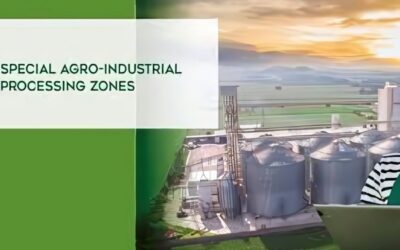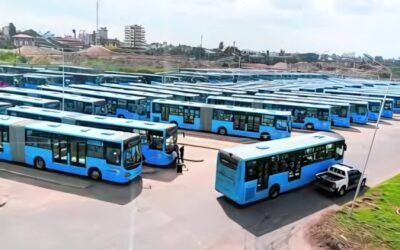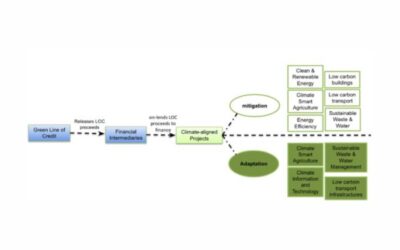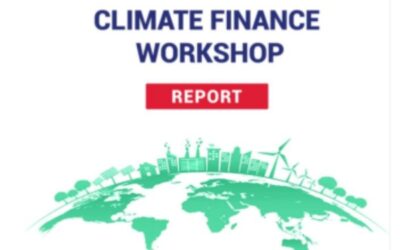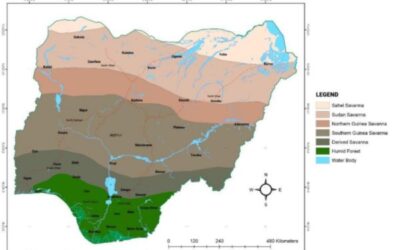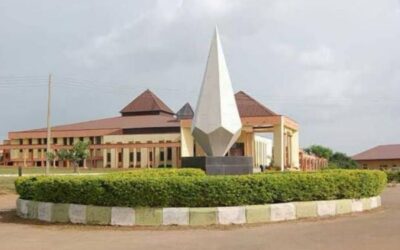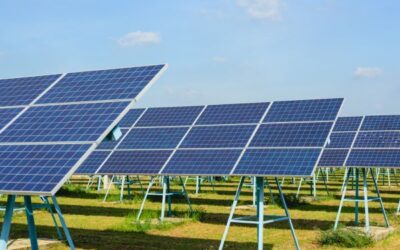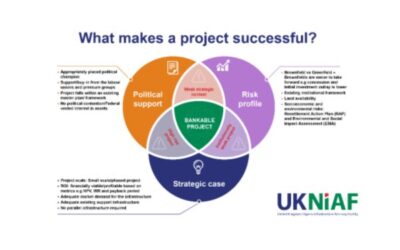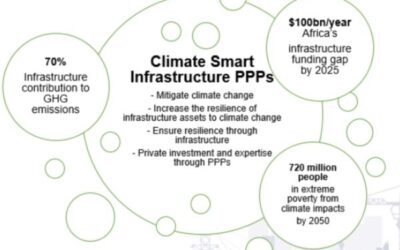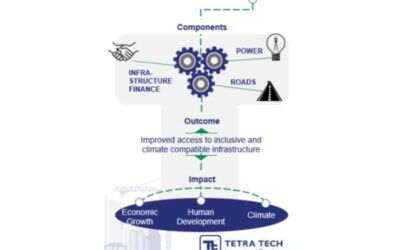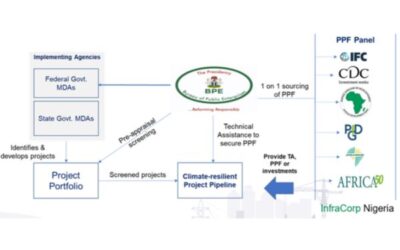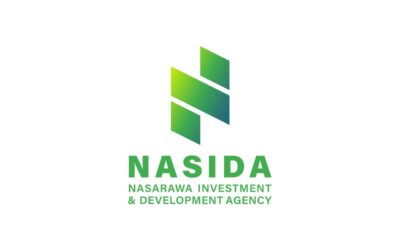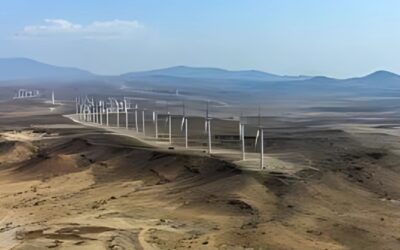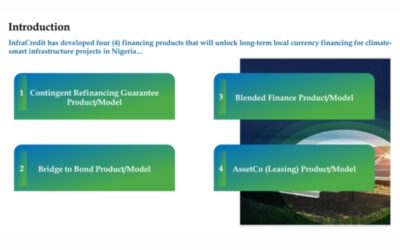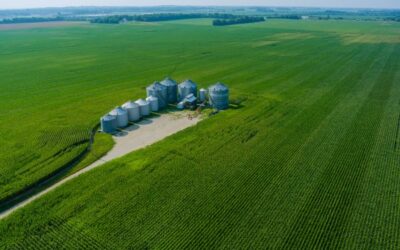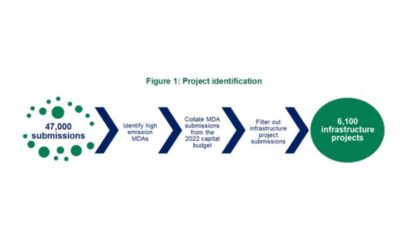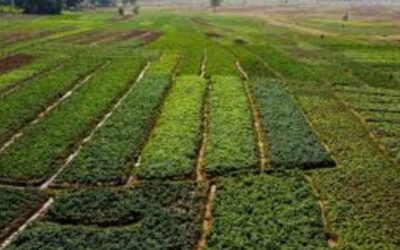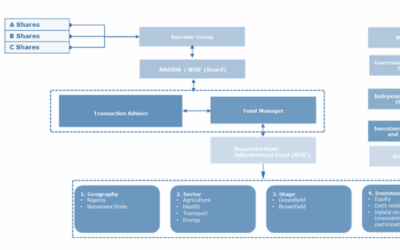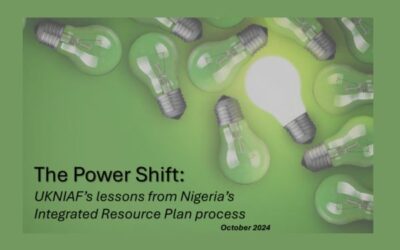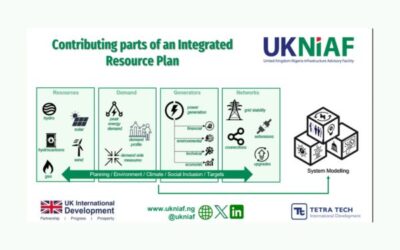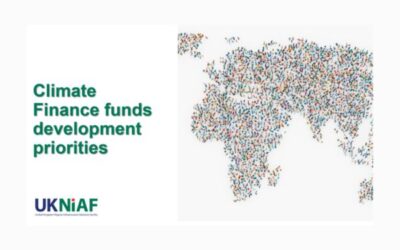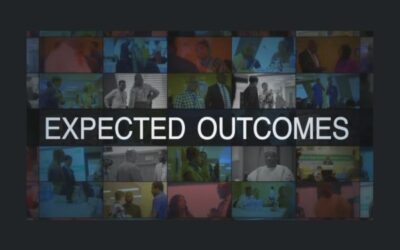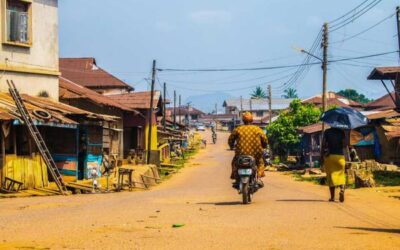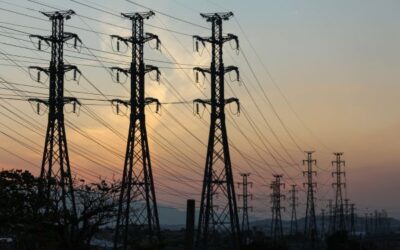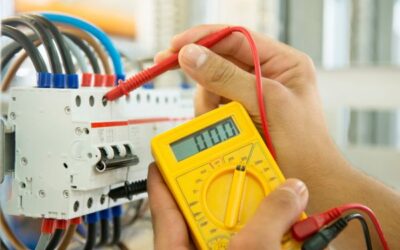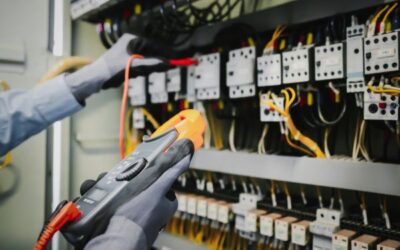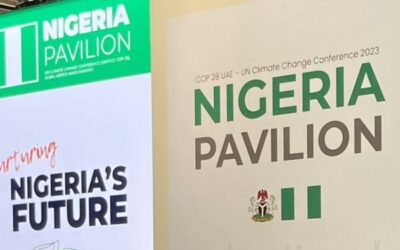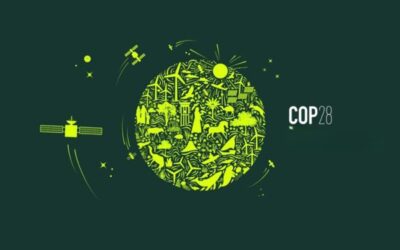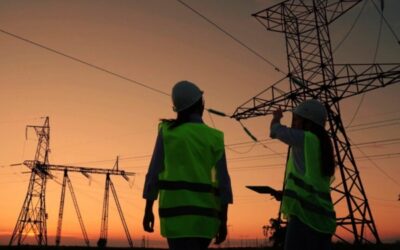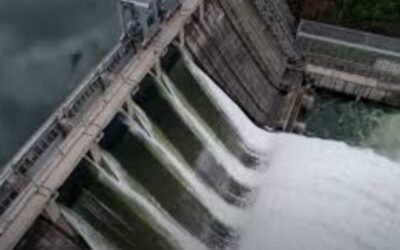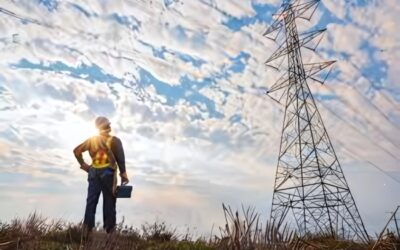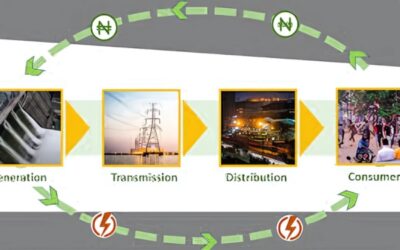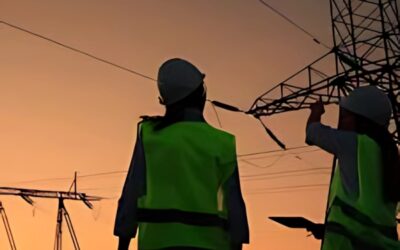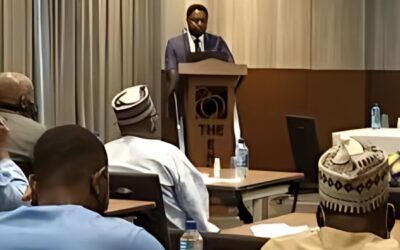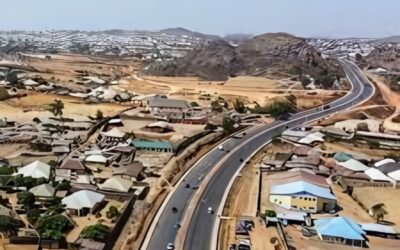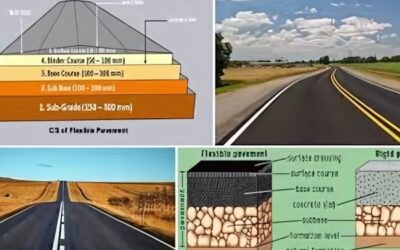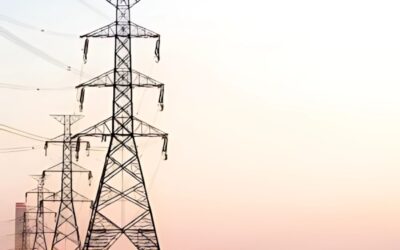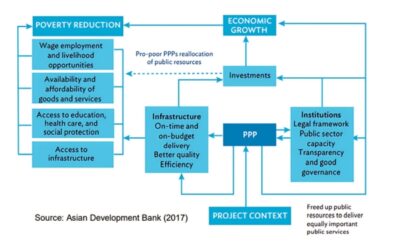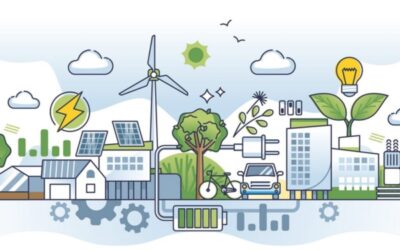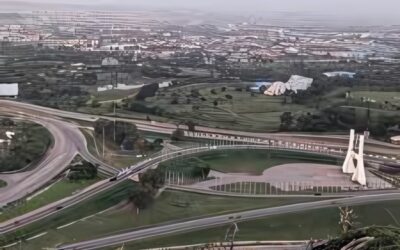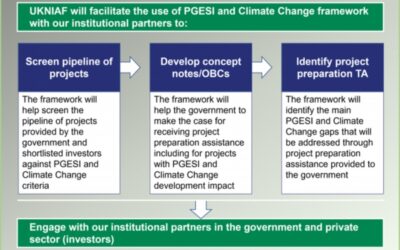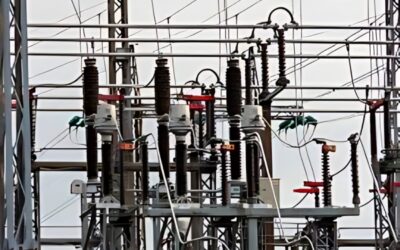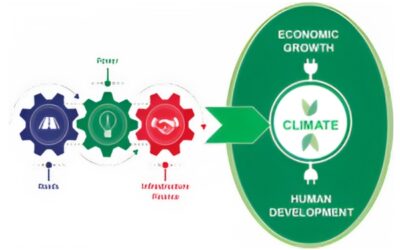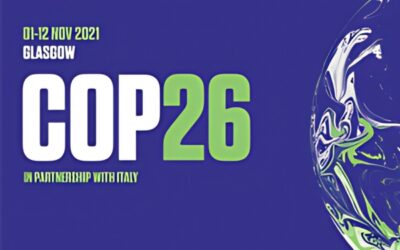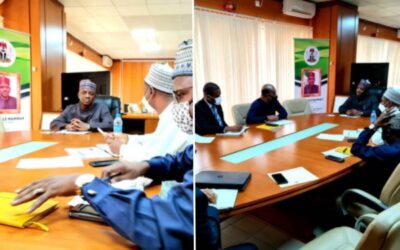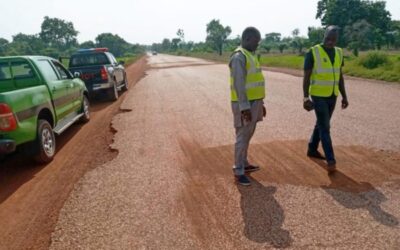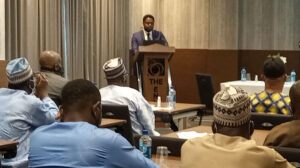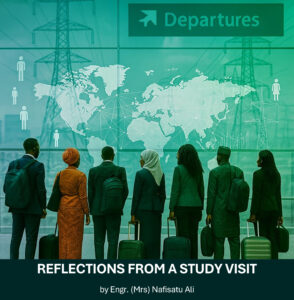Research & Writing
National Integrated Electricity Policy Report
Nigeria Integrated Resource Plan Report
Access to Climate Finance – Report of Roundtable
Carbon Market Development in Nigeria
Advisory Note in the Implementation of Special Agro-Industrial Processing Zones (SAPZ) Programme Financing
Abuja Bus Rapid Transit (BRT) Project
Climate Finance Strategy for Infrastructure Development in Nigeria
Climate Finance Navigator
Climate Finance for Development Priorities
Climate Finance Workshop Report
Demand Analysis Report Special Agricultural Processing Zones Nigeria Programme
Delivering Climate-Smart and Inclusive Student Accommodation – A Case Study
Energising Economies Initiative (EEI) Phase II Project Concept Note
Energising Education Programme Investment Deck
Guidance Document for Assessing Mitigation Impacts and Adaptation Benefits of Climate Smart Projects
How to make a Project Bankable
Key Issues in Climate Finance in Nigeria
Making PPPs work in Nigeria
Making PPPs work in Nigeria – National Council on Privatisation
Matching Climate Smart Pipeline Projects to DFIs
Nasarawa State Fiscal Commitments and Contingent Liabilities Framework
Nasarawa State Public-Private Partnership Manual
Medium Term Expenditure Framework and Fiscal Strategy Paper
Project Delivery Pathway
Overview of the Voluntary Carbon Market
Potential Financing Models for Climate Smart Infrastructure Projects
Procurement Strategy and Approach – Kaduna Green Allied Industrial Zone
Project Financing Conditions and Drawdown Action Plan (Special Agro-Industrial Processing Zones)
Project Preparation Facility – Summary Note on Evidence Gathering and Analysis
Project Screening Methodology
Special Agricultural Processing Zone Programme
Special Agricultural Processing Zones (SAPZ) Programme Approach
Special Agricultural Processing Zones (SAPZ) State Selection Criteria Guidance Note
Summary Guidance Note on the Set-Up of The Project Facilitation Fund
Summary Note on Guiding MDAs to Prepare Procurement Documents for Transaction Advisors
Unlocking Climate Finance for IPPs
The Power Shift: UKNIAF’s lessons from Nigeria’s Integrated Resource Plan process
As UKNIAF we learned several lessons helping to develop the National Integrated Resource Plan which will guide the future of Nigeria’s power sector.
Economic & bottom tier prospects in Nigeria’s 2023 Electricity Act: What’s your appetite?
The 2022 Constitutional Amendment expands the power of Nigeria’s 36 States to generate, transmit and distribute on-grid electricity. Before this amendment, State governments’ powers were mostly limited to off-grid electricity supply.
Contributing parts of an Integrated Resource Plan
Climate Finance Funds development priorities
Infrastructure needs can be aligned with climate change to enhance energy security, improve agriculture and promote urbanisation.
What you need to know about Climate Finance
Here in a nutshell is what you need to know about Climate Finance.
Roundtable for State Access to Climate Finance- Expected Outcomes
Engr. Frank Edozie, Team Lead, UKNIAF, emphasizes focusing on development projects that benefit the climate. Frank advises- “Don’t do climate. Do development projects that have an impact on the climate.”
It’s a big shift in perspective. By prioritizing sustainable development, we can create projects that not only drive progress but also positively impact the environment.
From Policy to Practice: Building the Future of Nigeria’s Energy Sector
The journey towards a decentralised electricity market in Nigeria is a vivid example of how legal frameworks can lead to substantial institutional and societal changes when coupled with effective policymaker coalitions.
From Policy Dialogues to Policymaker Coalitions
By Stella Odiase and Khadijat Baba-Muhammad
Electricity tariffs: a 3-way conversation #1
In this first of a three-part series Jumoke Delano, a multi-jurisdictional lawyer, and former Head of Regulatory Relations at the Abuja Electric Distribution Company, explores the interconnected roles of different players within the power value chain, and their need for cooperation and coordination.
Electricity tariffs: a 3-way conversation #2
In this second instalment of a three-part series Dr. Dalia Sakr, a UNFCCC accredited climate change expert, compares electricity and calorie consumption, pointing out that sometimes responsible behaviour takes discipline.
Electricity tariffs: a 3-way conversation #3
In this third and final instalment of a three-part series Stella Odiase, UKNIAF’s Cross Cutting Adviser and a Doctoral candidate at the Institute of Development Studies, Sussex University, reflects on a recent electricity customer interaction, where customer requests were quite straightforward.
Electricity tariffs: A three-way conversation
Three Perspectives on Nigeria’s Electricity Tariff Review:
the Utilities, the Climate Change Expert, and the Customer
Women on the Grid Hub
UKNIAF works to inspire women managers within the Nigerian power sector through the ‘Women on the Grid Hub. Eight trail-blazing women are helping us start this journey.
Nigeria and UKNIAF at COP28
For UKNIAF and its stakeholders, the way forward involves not just acknowledging Nigeria’s commitments at COP28 and the challenges in its path to achieving these, but actively engaging in appropriate solutions that deliver both national priorities and climate outcomes.
UKNIAF: The Z pamphlet for COP28
Here is a brief on who we are, what we do, who we work with and how Inclusive climate change is at the heart of our work.
UKNIAF supports electricity sector contract enforcement
Stories of Change: UKNIAF’s support to enhance electricity agreements in the power sector.
Integrating weather forecasts into electricity generation and dispatch
Stories of Change: UKNIAF’s work on weather forecasts with NiMet to TCN
Influencing infrastructure decision making
Stories of Change: UKNIAF’s work on the Decision Support Tool (DST)
Developing an Integrated Resource Plan for Nigeria
Stories of Change: UKNIAF’s work on the Integrated Resource Plan (IRP)
Mobilizing private sector finance for climate smart infrastructure projects
Stories of Change: UKNIAF’s work on Special Agro Processing Zones (SAPZ)
Support to transform Nigeria’s power regulation
Stories of Change: UKNIAF’s work on the Service Based Tariff dashboard (SBT)
Partial activation of contracts
Stories of Change: UKNIAF’s support to enhance electricity agreements in the power sector.
Intro: UKNIAF’s Climate Smart Infrastructure Public-Private Partnerships Training- Obinna Ihedioha
Obinna Ihedioha, Deputy Managing Director, UKNIAF, speaks on the need for the workshop, the agencies participating and the central theme of climate smart, sustainable infrastructure.
Women on the (electricity) Grid Hub
The Hub aims to encourage women’s active participation in the power sector
Power Sector Stakeholder Surveys
Assessing baseline knowledge on the development of an Integrated Resource Plan
UKNIAF, AfDB update and collaboration meeting
“There is a lot of alignment and convergence in our work in infrastructure, which is a core pillar in the Bank’s strategy in Nigeria. This meeting will be useful in helping us identify opportunities to zero in on.” – Lamin Barrow, Director General, African Development Bank Group
UKNIAF’s Roads component Learning Brief
To unpack lessons learnt from our Roads work, we present the history and politics of previous NIAF programmes, which influenced how the Roads work in UKNIAF was carried out
What have we learned from the Roads component?
Despite changes, pivots, and budget cuts UKNIAF’s Roads component consistently delivered its strategy through three work streams: Roads Asset Management System (RAMS), Reform, and Project Delivery.
Demonstration of the Service-Based Tariff Dashboard to GIZ’s Nigeria Energy Support programme
NERC is now able to monitor DisCos SBT SLA compliance at all 11kV feeders. The solution also features a range of supporting compliance and data integrity controls.
Creating a Power Sector Integrated Resource Plan in Nigeria
With the recognition that an effective IRP must be participatory and engaging of all stakeholders, the IRP will need more than one policy change champion.
Building a $7bn climate-smart pipeline of infrastructure projects in Nigeria
In keeping with the programme’s inclusive and sustainable development focus, UKNIAF adopted a climate sensitive and “people first” approach to the design of its infrastructure finance interventions
Lunch and Learn: Lessons learnt from UKNIAF pivot to a climate-smart programme
The three lessons in this blog describe how we were able to engineer this transition, keeping our core model in place, retaining our ever important partnerships, continuing to contribute towards our impact, but delivering a different set of tools and processes.
Learning note on People-First PPPs in Nigeria
Key considerations for project selection, prioritisation and development in Nigeria
COP26: UKNIAF’s contributions to positioning projects for Climate Finance
To improve the capacity of government agencies to screen, prepare bankable climate-smart infrastructure projects, and access downstream financing
COP26: UKNIAF’s contributions in the Roads Sector
Supporting Nigerian Roads Sector Ministries and Agencies in incorporating climate considerations into Federal Road Network maintenance, planning, prioritisation and surveys
Global Energy Efficiency Day
Supporting Power Sector Utilities to Plan and Deliver Electricity in Ways that Reduce Emissions and ‘Leave no one behind’
Operationalising UKNIAF’s Poverty, Gender and Social Inclusion and Climate Change Framework
The tool will be used to engage with and build institutional capacity regarding climate smart, inclusive and sustainable infrastructure
UKNIAF’s support to the National Mass Metering Programme
The current metering situation in Nigeria
Pivoting to a Climate-Smart Infrastructure programme
With the pivot, we are now fully aligned with the International Climate Fund objectives
Climate-Smart Infrastructure design and development in Nigeria
Coordination and capacity across key MDAs must be improved in the run-up to COP26 and beyond if policy objectives are to be met.
Making infrastructure finance responsive to climate and social inclusion
We created a PGESI and Climate Framework to support Federal Ministries, Departments and Agencies in assessing the pool of projects that attract private sector funding and increase the pace of implementation of cross-cutting initiatives
Adaptive learning: Nexus between Risks/PEA and Adaptation
As an adaptive programme, the programme’s risk management takes a comprehensive approach towards risk identification, prevention and mitigation
International Climate Finance (ICF)
International Climate Finance is a UK government commitment to support developing countries to respond to the challenges and opportunities of climate change
The Power Minister meets the UKNIAF Power team
To discuss partnering to transform critical power infrastructure and projects
Lunch and Learn: HighLevel Engagement for Future Programme Growth
Our Lunch and Learn series is one of several learning processes set up to encourage the programme to improve its quality of delivery as it responds and adapts to changing circumstance
Lunch and Learn: Lessons Learn on Roads Covid Response
Our Lunch and Learn series is one of several learning processes set up to encourage the programme to improve its quality of delivery as it responds and adapts to changing circumstance
Climate Smart Infrastructure Public – Private Partnerships
A 3-day training workshop




